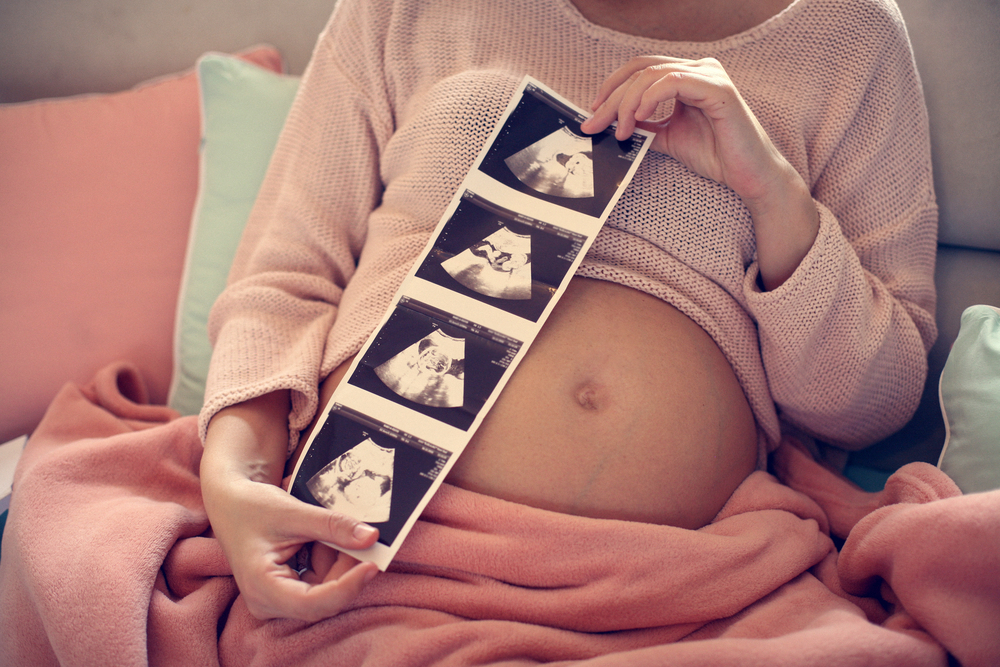In recent years, the age of marriage and the age of becoming a mother have increased with the active role of women in business life. Previously, women completed the number of children between the age of 35 and 40, while today the age of getting married or having the first child has reached the 35-40s. While most pregnancies aged 40 and over go smoothly, it should be known that some risks increase in advanced age pregnancies.
The risk of premature birth and low birth weight increases in pregnancies over the age of 40
The risk of low birth weight increases in pregnancies over 40 years and over of age. Low birth weight means that the baby’s weight is smaller than expected compared to the week of gestation. The reason why the baby’s weight is low compared to the week is that the wife of the baby (placenta) cannot send enough blood flow to the baby. In addition, the risk of premature birth is higher in older pregnancies than young women. Preterm birth also increases the possibility of a low birth weight baby. In this sense, necessary precautions and treatments in advanced pregnancies are of great importance in reducing neonatal morbidity.
Pregnancy poisoning (Preeclampsia) risk increases
Preeclampsia is a serious problem with high blood pressure and protein loss in the urine that occurs after the 20th week of pregnancy and can endanger the life of the mother and baby, and preeclampsia is more common in pregnant women aged 40 and over. For this reason, it is very important to measure blood pressure at every examination in older pregnancies, to investigate the patient in terms of preeclampsia if the blood pressure is high (> 140/90 mmhg) and not to miss preeclampsia.
Risk of gestational diabetes increases
Studies show that gestational diabetes is more common in older pregnancies. Gestational diabetes is glucose intolerance that first appears or is diagnosed during pregnancy. Gestational diabetes diagnosis is 24-28. It is put by performing a glucose load test between weeks. If the result of 50 g glucose load test is> 140 mg / dl, 100 g sugar loading test is performed to make a diagnosis. If this test is also high, gestational diabetes is diagnosed.
In recent years, concerns about the harmfulness of the glucose tolerance test have been popular, but this opinion is not true. The glucose tolerance test does not harm either the baby or the mother. On the contrary, if this test is not performed, gestational diabetes cannot be diagnosed and some problems may occur in the baby or the mother. For this reason, pregnant women aged 40 and over must be between the 24th and 28th days of pregnancy. She should have a glucose tolerance test between weeks. Thus, both the baby and the expectant mother will be protected from complications related to diabetes.
Down syndrome risk increases in older pregnancies
Down syndrome can be seen in pregnant women of all ages, but the risk increases even more in pregnancies over 35 years of age. Because after the age of 35, egg quality decreases. Consequently, errors occur during the merging of sperm and egg and the embryo has Down syndrome (Trisomy 21).
For the diagnosis of Down syndrome, all pregnant women between 11-14 weeks of gestation Double screening test between weeks 16-18. A quadruple screening test is done between weeks. However, the reliability of these tests is around 85%. So it is not 100%. These tests alone are not considered reliable, as pregnant women over the age of 35 have a higher risk of Down syndrome. For this reason, more accurate tests are recommended for pregnant women over the age of 35. These tests are:
- Fetal DNA test in maternal blood
- Amniocentesis (taking water from the mother’s womb)
There is a 1% miscarriage risk in the amniocentesis procedure. For this reason, fetal DNA test in maternal blood, which has been popular in recent years, is more preferred for the diagnosis of Down syndrome. For the diagnosis of Down syndrome, it is recommended by all authorities for pregnant women aged 40 and over to have one of these tests.
Miscarriage risk increases in pregnancies over the age of 40
In the normal population, 80% of abortions in the first 3 months are caused by genetic problems in the baby. In other words, an embryo that is not genetically healthy cannot attach to the uterus and is excreted by natural selection. This is the balance of nature. Egg quality decreases with the increase in female age. Accordingly, the possibility of chromosomal anomalies in the embryo formed increases. Accordingly, the risk of miscarriage increases in pregnant women aged 40 and over. There is no precaution or treatment for a genetic anomaly. In this case, the thing to do is to inform a woman who has become pregnant at an advanced age about the possibility of miscarriation and to advise her that she should not be upset if she is miscarried.
The risk of difficult birth and cesarean increases in older pregnancies
Normal birth may be a little difficult in pregnancies 40 years and older. This is due to the loss of flexibility of connective tissues. Studies have shown that the duration of pain increases over the age of 35, childbirth becomes difficult and there is more need for a C-section. In fact, in some clinics, first births over the age of 35 are taken directly to caesareas. In pregnancies aged 40 and older, the patient should be given the knowledge that the risk of difficult births and cesarean sections is higher than in young patients, and the roadmap should be determined accordingly.
As a result, some obstetric risks are higher in pregnancies aged 40 and over. However, with the necessary precautions and treatments, these risks can be minimized and pregnancy follow-up and childbirth can be performed in a healthy way.

